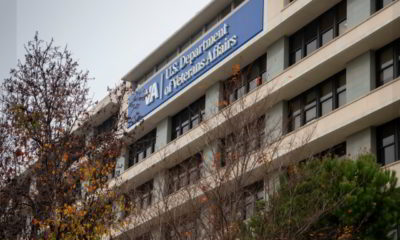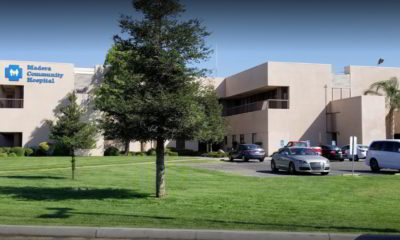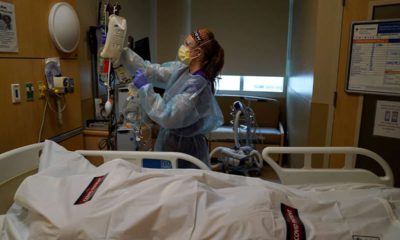Published
5 years agoon

Fresno Unified school buses haven’t transported kids since schools closed on March 13 due to the COVID-19 pandemic, but some of them are going back on the street with a new purpose sometime soon.
The district plans to park a couple of Wi-Fi-equipped school buses in a shady area near Kirk Elementary School in southwest Fresno, an area that is underserved by broadband service.
Karin Temple, the district’s chief operations officer, told trustees this week the bus-borne “hot spots” are the district’s latest effort to narrow the digital divide that separates students who have ready access to the internet from those who don’t.
District spokeswoman Nikki Henry said Friday the pilot program will start May 20 and run through May 29 on weekdays from 10 a.m. to 1 p.m. After that it will be evaluated, she said.
Fresno Unified is about two months behind other school districts across the nation that opted to park school buses with Wi-Fi in low-income neighborhoods to support distance learning.
The district focused first on getting mobile hot spots into the hands of students who lacked Internet access, Henry said.
“We have been in contact with several school districts across the nation who have tried using their bus Wi-Fi for their students, and what they have told us is that they have had very little if any engagement from their students and families,” she said. “Because of the lack of engagement they have pulled back on how much they are providing this service.”
The district is piloting the program at Kirk but could expand it to other areas in the district, such as southeast Fresno, that are underserved by broadband service, Temple said.
About six to eight children will be able to link up to each Wi-Fi device. Any more, and the signal strength degrades, she said.
Signage will be on the buses with information on how to contact the district’s information technology staff in case of connectivity issues, Temple said.
A district representative also will be on hand to make sure students maintain safe distances to avoid infection from the coronavirus, she said.
Students and families in the Kirk area will be notified by School/Messenger about the bus Wi-Fi, Henry said.
Nancy Price is a multimedia journalist for GV Wire. A longtime reporter and editor who has worked for newspapers in California, Florida, Alaska, Illinois and Kansas, Nancy joined GV Wire in July 2019. She previously worked as an assistant metro editor for 13 years at The Fresno Bee. Nancy earned her bachelor's and master's degrees in journalism at Northwestern University's Medill School of Journalism. Her hobbies include singing with the Fresno Master Chorale and volunteering with Fresno Filmworks. You can reach Nancy at 559-492-4087 or Send an Email



Tulare County Gang Member, Two Fresnans Head to Federal Prison


Study: First 10 Days After Leaving Hospital Pose Deadly Risks for COVID Patients


California Pins Vaccine Hopes on Biden Administration


Bay Area Restaurants, Wineries File Lawsuit Over Outdoor Dining Ban


Madera Hospital, With ICU Inundated, Transfers Patients to Other Facilities


‘Shameful’: US Virus Deaths Top 400k as Trump Leaves Office




Andyfab
May 18, 2020 at 8:26 pm
These school buses that are equipped with wifi are supposed to be able to handle the wifi needs of a full bus load of students. The District said that students could access the internet while on their way to or from a football game or while on their way home from school. To say that only 6-8 students can access the internet at one time just doesn’t make any sense. Why have wifi on a bus that carries between 60 to 80 students that has such a limited capability. And how will parking a school bus in a neighborhood that has low access to the internet meet the needs of homeless students who have zero access to electricity to recharge the battery in their laptop? Maybe the District will allow them to live in the buses and sleep on the seats. Of course that still doesn’t solve the problem of recharging their laptops.